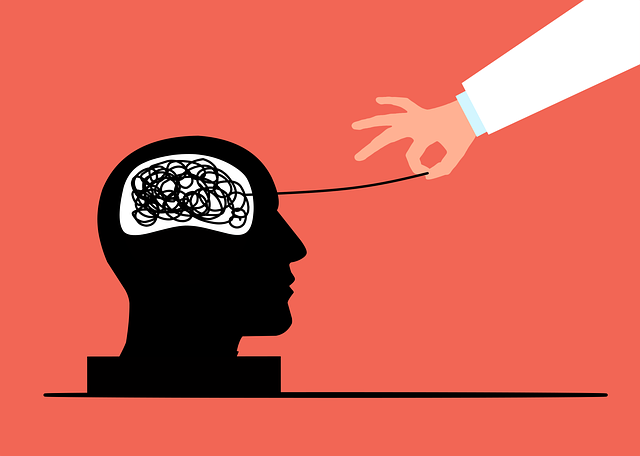Mental Wellness Journaling with Littleton German Speaking Therapy provides a non-stigmatized, culturally sensitive approach to emotional well-being management through structured journaling. This practice encourages expression in one's native language, fostering accessibility in mental healthcare. Regular journaling helps process emotions, prevent burnout, and uncover deeper insights into thoughts and feelings, ultimately enhancing mental wellness, as supported by studies in German-speaking therapy in Littleton. Start with 10 minutes daily in a quiet space, personalize your practice with mood tracking or stress trigger identification, and utilize writing prompts for guidance to make journaling a beneficial habit.
“Unleash your inner strength through the transformative power of Mental Wellness Journaling, guided by the expert insights of Littleton German Speaking Therapy. This article explores how this simple yet profound practice can significantly enhance your mental health and well-being. We delve into the benefits, offering techniques to make journaling an effective exercise. Discover practical tips tailored by Littleton German Speaking Therapy to seamlessly integrate daily journaling into your routine, empowering you to navigate life’s challenges with resilience and clarity.”
- Understanding Mental Wellness Journaling with Littleton German Speaking Therapy
- Benefits and Techniques for Effective Journaling Exercise
- Practical Tips for Incorporating Daily Journaling into Your Routine
Understanding Mental Wellness Journaling with Littleton German Speaking Therapy

Mental Wellness Journaling with Littleton German Speaking Therapy offers a powerful tool for individuals to explore and understand their mental health. This therapeutic practice encourages self-reflection and introspection by documenting thoughts, feelings, and experiences in a structured journal. By committing this process to paper, individuals can gain valuable insights into their emotional states, identify triggers, and develop coping strategies—all of which are essential elements in managing mental illness.
In a world where mental illness stigma reduction efforts are gaining momentum, this form of journaling can serve as a safe and private space for expression. Moreover, it fosters cultural sensitivity in mental healthcare practice by allowing individuals to communicate their experiences in their primary language, making the therapeutic process more accessible and inclusive. Burnout prevention is also addressed, as the act of journaling provides an outlet for processing emotions and reduces the burden of silently carrying mental health challenges.
Benefits and Techniques for Effective Journaling Exercise

Journaling is a powerful tool for cultivating mental wellness, offering individuals a private space to reflect, process emotions, and gain clarity. This simple yet profound practice has been shown to improve mood, enhance self-awareness, and build resilience – benefits that resonate deeply with those seeking support through German speaking therapy in Littleton.
Effective journaling involves combining specific techniques tailored to individual needs. Some popular methods include writing freely about one’s day, setting intentional prompts, or utilizing creative exercises like drawing or collage. For instance, a community outreach program implementation targeting stress management might encourage journaling as a way to process and reduce anxiety. By regularly committing to this practice, individuals can develop coping strategies, track progress, and uncover deeper insights into their thoughts and feelings, ultimately fostering greater emotional well-being.
Practical Tips for Incorporating Daily Journaling into Your Routine

Incorporating daily journaling into your routine can be a powerful tool for enhancing mental wellness, as supported by various studies in the field of German-speaking therapy in Littleton. Start small—even just 10 minutes a day can make a significant difference. Choose a quiet space where you won’t be disturbed, and select a journal that feels comfortable to hold and write in. Consistency is key; aim for a regular time each day to ensure it becomes a habit.
Consider personalizing your journaling practice by setting specific goals. For instance, you might focus on tracking moods, identifying triggers for stress or anxiety (a helpful aspect for Depression Prevention), or reflecting on achievements. Incorporate writing prompts if you need guidance—these can be as simple as asking yourself about the best and worst moments of your day or exploring your emotions through descriptive language. Remember, emotional healing processes often involve introspection, and journaling provides a safe space to explore these nuances.
Mental wellness journaling, as guided by Littleton German Speaking Therapy, offers a powerful tool for self-reflection and emotional well-being. By combining understanding mental health principles with effective journaling techniques, individuals can unlock profound personal insights and improve their overall mental fitness. Incorporating daily journaling into your routine, as outlined in this article, is an accessible step towards prioritizing your mental wellness. Remember, consistent practice can lead to significant changes, helping you navigate life’s challenges with resilience and a newfound sense of calm.














